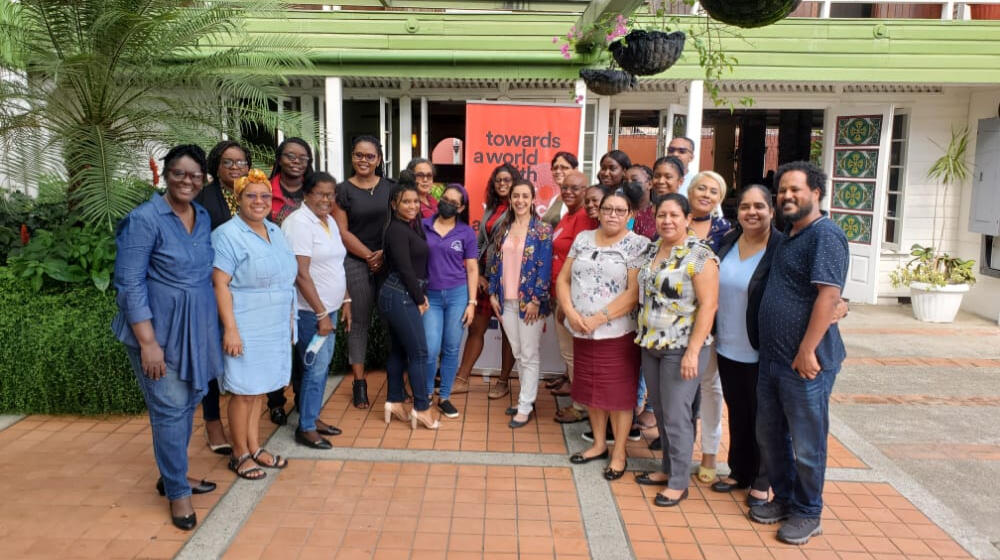Essential workers in Guyana are benefitting from a series of workshops geared at building their capacity to respond to gender based violence (GBV) in Guyana. The workshops are being delivered under Pillar Four of the European Union funded Spotlight Initiative which aims to eliminate all forms of violence against women and girls. The goal of the workshops was to strengthen the delivery of essential services in Guyana for survivors of Gender-Based Violence.
An international Gender-Based Violence Case Management Specialist hired by UNFPA, conducted an in-person GBV Case Management Training in Georgetown Guyana on behalf of UNFPA in partnership with the Ministry of Human Services and Social Security. Attendees included personnel from the Ministry of Human Services and Social Security such as the Survivors Advocates, 914 hotline operators/supervisors, the Counter Trafficking Unit, the Childcare and Protection Agency, and the Probation Unit as well as a number of prominent Civil Society Organizations from Regions Four and Six.
The training focused on assisting case management service providers with enhancing their technical and interpersonal skills to deliver quality GBV services. The four-day training focused on: principles and standards for GBV case management and GBV information management; effective knowledge, practice and tools to apply the different steps of GBV case management; effective resources for the coordination of interventions among several service providers; required skills to provide psychosocial support to survivors; and required capacities for effective supervision and coaching.
Following the completion of the Gender-Based Violence Case Management Training, an SOP Validation Workshop was conducted with many of the same stakeholders who attended the previous sessions. Prior to her arrival, the GBV Case Management Specialist drafted SOPs for Case Management in Guyana. The aim of the Workshop was to obtain feedback on the SOPs in order to establish common principles, standards and procedures, roles and responsibilities to deliver GBV Case Management quality services and ensure multidimensional, coordinated and standardized approaches to GBV Case Management in Guyana. This would be done through consulting different stakeholders from government, humanitarian organizations and civil society, as well as other national GBV service providers, to develop and review a draft document of the interagency GBV Case Management SOPs and provide inputs, updates, feedback and validation to the different sessions of the proposed draft.
The third workshop was held in Georgetown and Port Kaituma. This training convened representatives from the social sector, health sector, justice and policing sector, and governance sector to discuss service delivery guidelines for the core elements of each essential service. These discussions allowed the consultant to develop a Theory of Change related to the improvement in the quality of services provided to survivors of GBV through analysing the standards and guidelines of each sector of service provision (justice/policing, health, social, and governance/coordination) that are in place to respond to survivors of Gender-Based Violence, as well as analysing the gaps, challenges, and opportunities that exist in each area of service provision.


